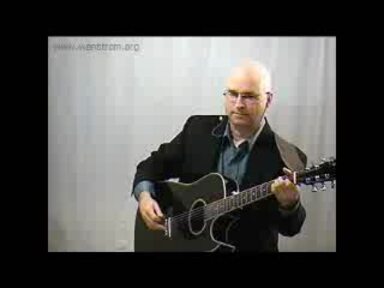Contemporary Approaches to the New Testament Canon

Canonicity • Sermon • Submitted • 52:51
0 ratings
· 53 viewsContemporary Approaches to the New Testament Canon Lesson # 15
Files
Notes
Transcript
Some scholars have argued that the idea of a canon should be done away with or even entertained since they believe that there is no qualitative difference between the New Testament books and other early Christian literature.
Thus, they contend that whatever sources shed light on the early Christian movement should be treated all the same way.
Thus, they argue that James should not be treated any different than Clement of Rome.
However, the problem with this view is that it only becomes reasonable if one rejects the notion of the canon as a closed list of authoritative books as well as the idea of Scripture.
This view is much too quick to abandon the heritage of the church.
It is also helped by the views of scholars who consider the canonical books as late.
There is another debate among scholars that is regarding the notion of a “canon within the canon.”
There are some who contend that the church should recognize that different groups had the freedom or even the obligation to define certain portions of the canon as being definitive for them.
For example, Luther and Calvin emphasized the teaching of Romans and Galatians more than let say 1 Peter or Revelation.
Therefore, why not recognize that certain groups had the freedom and obligation to define certain portions of the canon as Scripture for them.
Related to this, there are some who view the canon as a spiral meaning that the church should consider books such as James, and 2 Peter as the outermost elements of the canon which eventually gave way to the inner core such as the gospel of John and Romans.
However, the idea of Scripture and the canon reject all such approaches since they are all subjective rather than objective.
They in fact deny that there is a canon which must be the basis for our decisions as pastors.
It is true some parts of the New Testament have a bigger influence than others because they are longer and more comprehensive.
These views relativize the canon and in fact deny that there is a canon which must stand as the basis for our pastoral choices.
Some like the Roman Catholic church has at times declared that the church’s role in establishing the canon which has resulted in the view that the church’s authority established the canon, which stands in direct contrast to traditional Protestant doctrine.
Protestantism has maintained from the beginning that the church merely recognizes that which is canonical and could never establish the canon.
Traditionally Protestantism has maintained that the church’s role with regards to the canon is to merely recognize that only certain books demand the church’s obedience and not others which results in constituting a canon or in other words a closed list of authoritative books.
Recently, there has been developed the view that the text which we have of the New Testament today is the direct result of the church’s handling of its own traditions.
This would include the peculiar interpretations established by inner-biblical connections and these must be accepted as normative for the church.[1]
This view is called canon criticism.
Although this view expresses the effort to read the Bible as a whole and to read each of the biblical books as completed works, it does express abstract truths that can be inferred from the text as a whole but rejects numerous biblical truths which have historical referents.
Therefore, we must remember when approaching the subject of canonicity that God has indeed revealed Himself in history.
He discloses Himself and in the past has disclosed Himself.
He is also a God who speaks and who keeps His covenants with men.
He has of course also revealed Himself perfectly through Jesus Christ.
This establishes the necessity of the canon and by way of implication this canon’s closure.
The church did not establish the canon or in other words, it did not choose the books we now have in our English New Testament but rather she merely recognized the authority of these books and which authority comes from God Himself.
[1] Carson, D.A. and Moo, Douglas J., An Introduction to the New Testament-Second Edition; page 741; copyright 1992, 2005; Zondervan
c. circa, about (with dates); column
